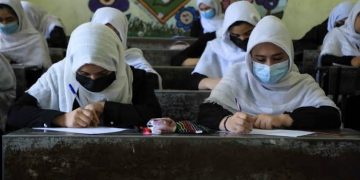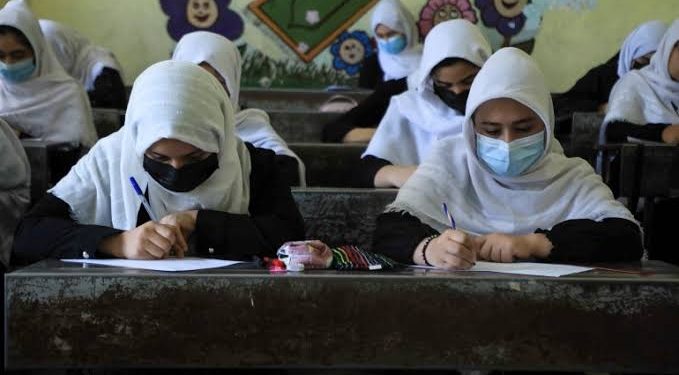By John Ikani
Women in Afghanistan can continue to study in universities, up to post-graduate levels, but classrooms will be gender-segregated and Islamic dress is now compulsory, the Taliban group have said.
Revealing this during an interview with newsmen on Sunday, the Taliban’s higher Education Minister, Sheikh Abdul Baqi Haqqani, said “Co-education conflicts with the principles of Islam and, on the other hand, it is in conflict with national values and is against the customs and traditions of Afghans.”
“If the universities have the capacities, campuses should be segregated by gender, if that is not possible, the universities should establish alternate class timing or ensure a partition between male and female students in the classrooms, Haqqani said.
While noting that female students would be taught by women wherever possible, the minister added that the subjects being taught would also be reviewed.
Although Haqqani did not elaborate the manner which the subjects would be reviewed, he said he wanted graduates of Afghanistan’s universities to be competitive with university graduates in the region and the rest of the world.
The Taliban’s rise has stoked fears that the group would turn back to the draconian rule that defined its first stint in power in Afghanistan 20 years ago. That included the denial of education for girls and women, as well as their exclusion from public life.
Observers of Afghanistan – as well as the nation’s female population – have been nervously waiting to hear what the Taliban’s new education policy would be.
“We will start building on what exists today,” Haqqani said, maintaining the Taliban’s position that its attitudes, particularly towards women, have shifted in the past 20 years.
The new higher education policy signals a change from the accepted practice before the Taliban takeover. Universities were co-ed, with men and women studying side by side, and female students did not have to abide by a dress code.
However, the vast majority of female university students opted to wear headscarves in line with religious, personal and cultural preferences.




































